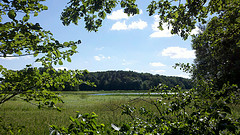By Tom Steward | Watchdog Minnesota
Bill McKenzie’s email was short and to the point.
“I am (an) individual bondholder. Why doesn’t the city go to the reserve funds and pay the bond interest due on these bonds? You are hurting bondholders who loaned the city this money,” McKenzie wrote in frustration.
The plea went out last week from the 70-year-Tucson retiree who with his wife lives more than 1,700 miles from the Monticello, Minn., City Council members he attempted to contact.
City officials’ response? No reply— same as before, he said.






